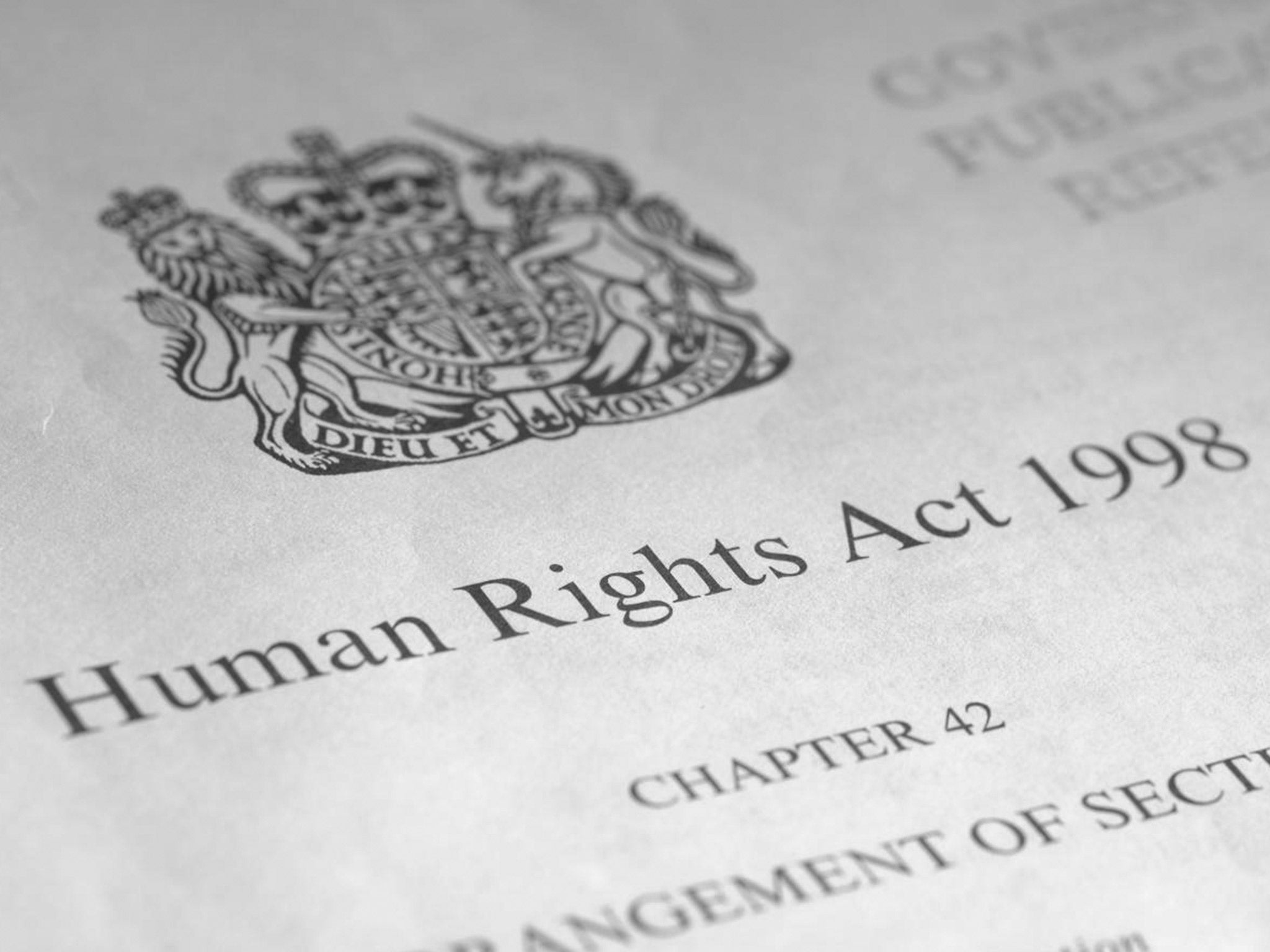We must reform the European Court of Human Rights, not reject it
Withdrawal would be a retrograde step for the steady improvement of our laws

Your support helps us to tell the story
From reproductive rights to climate change to Big Tech, The Independent is on the ground when the story is developing. Whether it's investigating the financials of Elon Musk's pro-Trump PAC or producing our latest documentary, 'The A Word', which shines a light on the American women fighting for reproductive rights, we know how important it is to parse out the facts from the messaging.
At such a critical moment in US history, we need reporters on the ground. Your donation allows us to keep sending journalists to speak to both sides of the story.
The Independent is trusted by Americans across the entire political spectrum. And unlike many other quality news outlets, we choose not to lock Americans out of our reporting and analysis with paywalls. We believe quality journalism should be available to everyone, paid for by those who can afford it.
Your support makes all the difference.The Conservative general election success is a victory few predicted. Within this mandate is a commitment to scrap the Human Rights Act and introduce a British Bill of Rights. The Queen’s Speech said the Government will “bring forward proposals” for this.
We have a judicial and democratic system that is envied across the world. Our ability to dispense justice is often cited as exemplary. Much of the international community is perplexed that the UK, of all countries, should be contemplating leaving the European Court of Human Rights (ECHR).
To feel undermined by a system that’s available to citizens when they feel wronged by the state displays a serious lack of confidence. Yet many in the UK now view the ECHR and the Act as a charter for abuse by terrorists and criminals. Our commitment to human rights should not lead to estrangement from the ECHR.

Withdrawal from the convention would be a retrograde step for the steady improvement of our laws that independent, international co-operation with the ECHR provides. In Scotland, a suspect was allowed access to a lawyer during questioning only by relying on rights under the European Convention.
While the court is an essential part of the system, it is clearly not working as well as it should. It is plagued by a backlog of cases and suffers from a tendency to become involved in all sorts of matters, not just those which pose a serious threat to human rights’ protection in Europe – as was its original aim. We ought to be committed to reforming the court from within, rather than withdrawing from it completely.
Many nations agree that the court and its procedures need reform, and several initiatives have over the years tried to improve its efficiency. The UK built on the work of other similarly minded nations, culminating in the Brighton Declaration in April 2012.
Its practical achievements are clear: improving the emphasis on “subsidiarity” and the “margin of appreciation” that allows national judges to respect convention rights in a manner that is reflective and sympathetic to their own legal traditions; a more streamlined and effective system for managing whether cases can be heard in Strasbourg; and a better method of dealing with “repetitive cases” where the court has made a clear judgment and no new legal issues arise.
Perhaps more importantly, the Brighton Declaration is indicative of the possibilities for achieving reform in institutions that are often portrayed as beyond repair. We should be committed to a continuing reform of human rights, not only domestically but also as a leader in partnership in Europe. We have done it before and can do it again.
Sajjad H Karim is the Conservative Party legal affairs spokesman in the European Parliament
Join our commenting forum
Join thought-provoking conversations, follow other Independent readers and see their replies
Comments